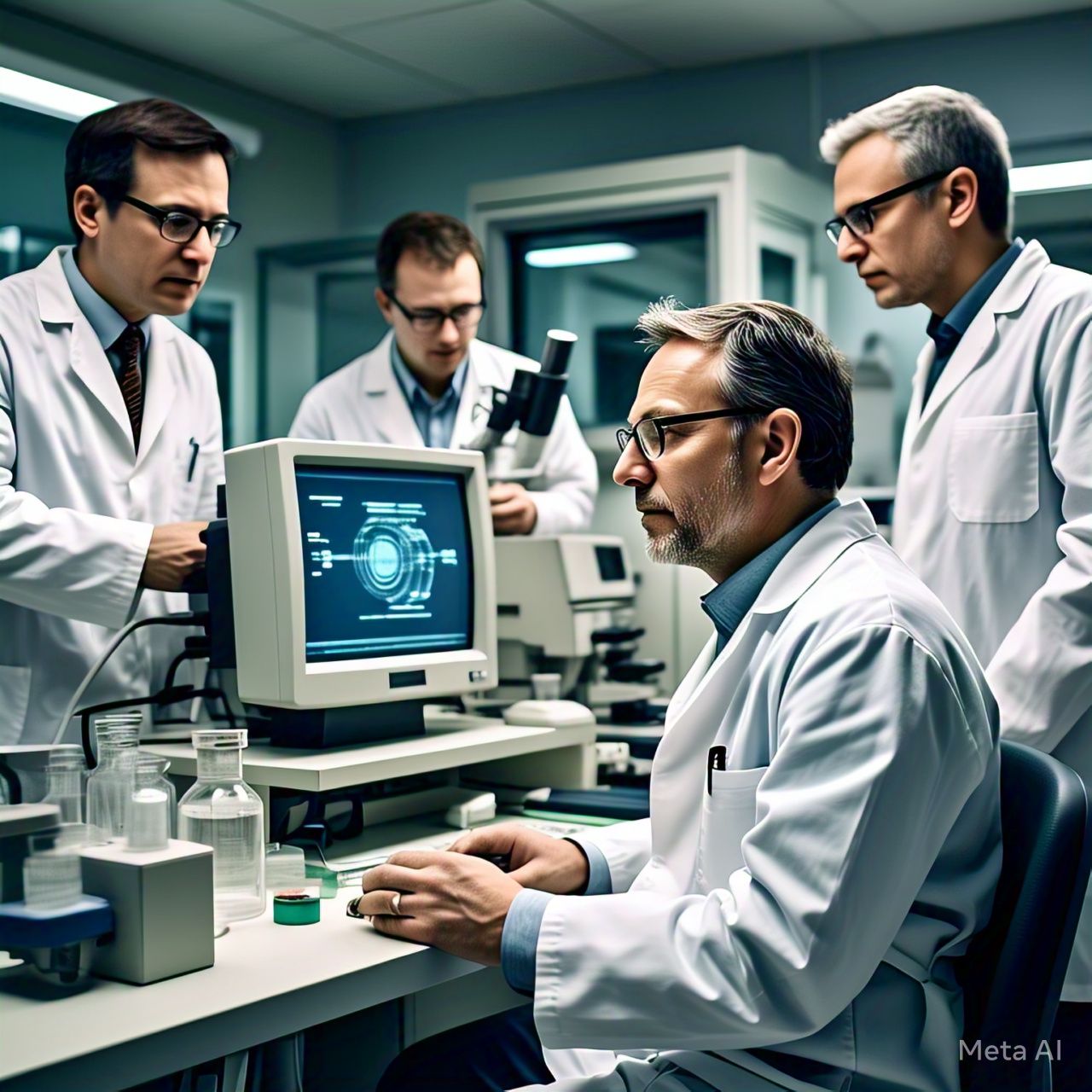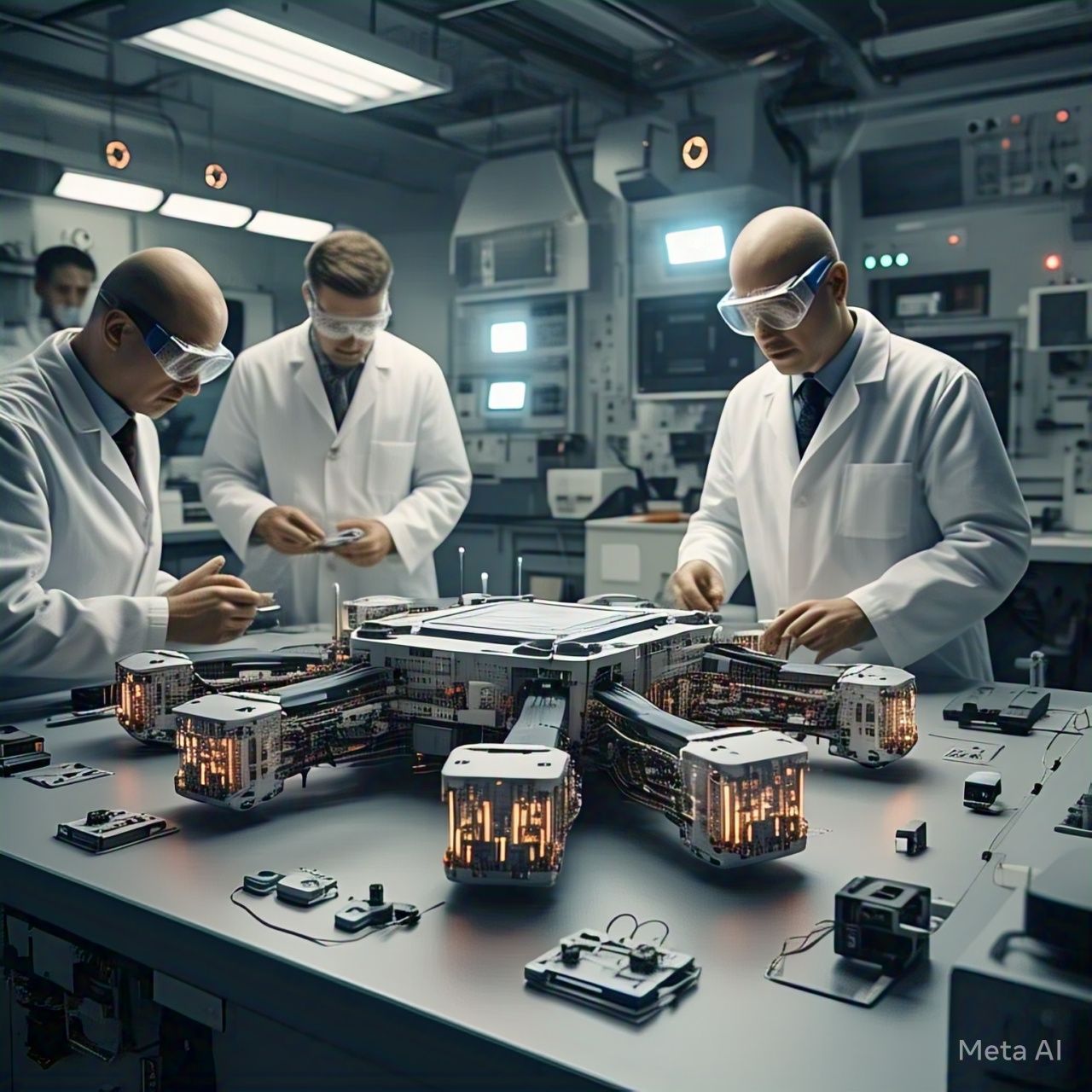Table of Contents
- Introduction
- The Role of AI in Drug Discovery
- How AI Accelerates Drug Discovery
- AI-Powered Drug Design and Development
- AI and Target Identification
- AI in Preclinical Testing
- AI for Clinical Trials Optimization
- Benefits of AI in Drug Discovery
- Challenges and Ethical Considerations
- The Future of AI in Drug Discovery
- Conclusion
- FAQs
Introduction
Traditional drug discovery is a long, expensive, and complex process that can take over a decade and billions of dollars to bring a single drug to market. Artificial Intelligence (AI) is transforming this field by significantly speeding up research, reducing costs, and improving accuracy in drug development. In this article, we explore how AI is reshaping drug discovery, its applications, benefits, challenges, and the future of AI-driven pharmaceutical research.
The Role of AI in Drug Discovery
AI is being integrated into various stages of drug discovery, helping researchers analyze vast datasets, predict molecular interactions, and design effective drugs. Key AI techniques used in drug discovery include:
- Machine Learning (ML): Algorithms analyze biological and chemical data to identify potential drug candidates.
- Deep Learning (DL): Neural networks predict drug-target interactions and disease mechanisms.
- Natural Language Processing (NLP): AI processes scientific literature to extract relevant information.
- Generative AI: AI models design new drug molecules with desirable properties.
How AI Accelerates Drug Discovery
1. Data-Driven Drug Discovery
- AI sifts through vast amounts of biomedical data, uncovering potential drug candidates.
- AI helps identify hidden patterns in genetic, molecular, and clinical data.
2. Predicting Drug-Target Interactions
- AI predicts how a drug molecule will interact with specific biological targets.
- AI reduces trial-and-error in drug formulation.
3. AI in Virtual Screening
- AI automates the screening of millions of compounds for potential drug candidates.
- AI prioritizes molecules with the highest likelihood of success.
AI-Powered Drug Design and Development
1. Generative AI for Molecule Design
- AI generates novel molecular structures optimized for specific diseases.
- AI-driven molecular design reduces the time spent on laboratory synthesis.
2. AI in Structure-Based Drug Design
- AI analyzes 3D structures of proteins to design drugs that fit perfectly.
- AI-driven drug modeling predicts binding affinity and toxicity risks.
AI and Target Identification
1. Identifying Disease Pathways
- AI analyzes genomic and proteomic data to identify disease-associated targets.
- AI-driven precision medicine tailors treatments based on genetic profiles.
2. AI-Powered Biomarker Discovery
- AI detects early biomarkers for diseases such as cancer and Alzheimer’s.
- AI-assisted biomarker identification improves early diagnosis and treatment effectiveness.
AI in Preclinical Testing
1. AI for Toxicity Prediction
- AI predicts potential side effects of drug candidates before clinical trials.
- AI helps avoid costly failures due to safety concerns.
2. AI-Driven Drug Repurposing
- AI identifies existing drugs that can be repurposed for new diseases.
- AI-driven drug repurposing accelerated COVID-19 treatment development.
AI for Clinical Trials Optimization
1. AI in Patient Recruitment
- AI identifies eligible patients for clinical trials based on genetic and medical records.
- AI reduces recruitment time and improves trial efficiency.
2. AI for Personalized Drug Response Prediction
- AI analyzes patient data to predict how individuals will respond to drugs.
- AI improves treatment personalization and reduces adverse effects.
3. AI in Real-Time Monitoring of Clinical Trials
- AI-powered analytics detect trial inefficiencies and recommend adjustments.
- AI minimizes trial delays by optimizing dosage and safety monitoring.
Benefits of AI in Drug Discovery
| Benefit | Description |
|---|---|
| Faster Drug Development | AI accelerates the drug discovery process from years to months. |
| Reduced Costs | AI-driven automation reduces laboratory expenses and trial failures. |
| Higher Success Rates | AI improves drug design accuracy, reducing costly failures. |
| Early Disease Detection | AI identifies biomarkers for early diagnosis and intervention. |
| Personalized Medicine | AI tailors treatments based on patient-specific genetic data. |
| Drug Repurposing | AI helps find new applications for existing drugs. |
Challenges and Ethical Considerations
1. Data Privacy and Security
- AI relies on vast patient datasets, raising privacy concerns.
- Compliance with regulations such as GDPR and HIPAA is critical.
2. AI Bias and Fairness
- AI models trained on biased datasets may result in unfair drug recommendations.
- Diversity in training data is essential for unbiased AI outcomes.
3. Regulatory Approval Challenges
- AI-developed drugs require rigorous validation and FDA approvals.
- Regulatory frameworks for AI-driven drug discovery are still evolving.
4. Interpretability of AI Models
- AI-generated results must be explainable for regulatory and medical acceptance.
- Transparency in AI decision-making is crucial for trust in AI-driven medicine.
The Future of AI in Drug Discovery
1. AI and Quantum Computing
- AI combined with quantum computing will simulate molecular interactions at unprecedented speeds.
- Quantum-powered AI will revolutionize complex drug discovery calculations.
2. AI-Powered Drug Development Ecosystems
- AI-driven platforms will integrate research, clinical trials, and patient data.
- Collaborative AI ecosystems will enhance global drug discovery efforts.
3. AI in Predicting Pandemics and Developing Vaccines
- AI will predict future disease outbreaks and design vaccines rapidly.
- AI-driven vaccine development will improve pandemic preparedness.
Conclusion
AI is revolutionizing drug discovery by significantly reducing the time, cost, and complexity associated with bringing new medicines to market. By leveraging deep learning, predictive modeling, and big data analytics, AI is enabling faster drug development, improving accuracy, and making personalized medicine a reality. While challenges such as ethical concerns and regulatory barriers exist, the future of AI-driven drug discovery holds immense potential in transforming healthcare and saving lives.
FAQs
1. How does AI help in drug discovery?
AI analyzes large datasets, predicts drug-target interactions, and designs novel molecules, significantly speeding up drug discovery.
2. Can AI replace human scientists in drug discovery?
No, AI assists researchers but does not replace them. AI enhances decision-making, while scientists validate and refine drug candidates.
3. What are the risks of using AI in drug discovery?
Risks include biased AI models, data privacy concerns, and regulatory hurdles in approving AI-developed drugs.
4. Has AI successfully discovered any new drugs?
Yes, AI has identified promising drug candidates, including AI-designed drugs for ALS, cancer, and COVID-19.
5. What is the future of AI in pharmaceuticals?
AI will continue to enhance drug design, optimize clinical trials, and accelerate vaccine development, transforming global healthcare.
Citations:
- Smith, J. (2023). AI in Drug Development: The Next Frontier in Medicine. Journal of Biopharmaceutical Research.
- Johnson, R. (2022). Machine Learning in Drug Discovery: Current Trends and Future Prospects. AI in Healthcare Review.
- Lee, K. (2023). AI-Powered Drug Repurposing: A New Era in Medicine. Pharmaceutical Innovations Journal.




